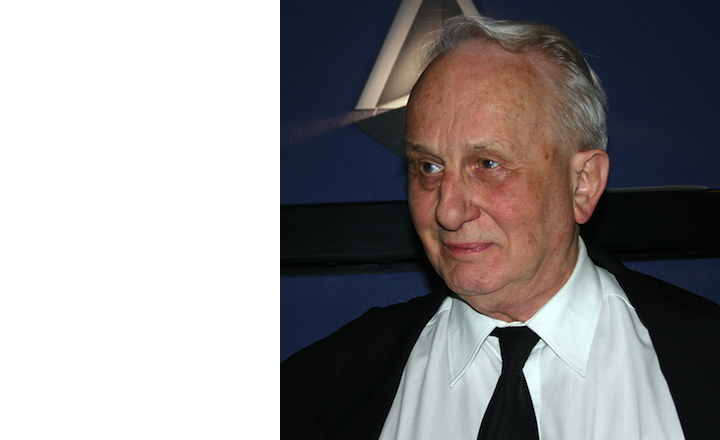Ronald J. Rychlak
The following article was written by Ronald Rychlak, Distinguished Professor of Law at the University of Mississippi Law School. He also serves on the Board of Advisers of the Catholic League.
Rolf Hochhuth has passed away in Germany at the age of 89. He is best known as author of the 1963 play The Deputy (Der Stellvertreter), which first raised serious charges against Pope Pius XII and his leadership of the Catholic Church during the Holocaust. The play tried to make the case that Pius, if not actually pro-Nazi, at least feared Communism more than he feared Hitler.
Prior to the play, Pius had been hailed as a hero to the victims, an inspiration to the rescuers, and as the New York Times editorialized in 1942, “a lonely voice crying out of the silence of a continent.” After the play, his reputation was that of a silent enabler if not a collaborationist. While the play was fictional, Hochhuth claimed that it was based on “provable facts,” and he appended a text (Sidelights on History) in which he argued that his depiction was justified by the historical record.
A play was a smart tactic. While numerous holes were poked in the narrative, Hochhuth responded by claiming artistic license and the need to use theatrical devices to advance the story.
It was not until 2007 that Ion Mihai Pacepa, the highest-ranking defector from the Soviet intelligence bloc revealed that The Deputy had been crafted, developed, and promoted from inside the Kremlin. After that, closer scrutiny of Hochhuth’s efforts showed that he had worked to discredit Winston Churchill, promote Che Guevara, defend a noted Holocaust denier, and generally support the Soviet line, whatever it might be. His 2004 play McKinsey is Coming, for instance, was seen by many as excusing violence against capitalists.
Hochhuth’s collaborator and life-long friend was the noted Holocaust denier David Irving. In 2005, Irving was arrested in Austria and charged with Holocaust denial. Hochhuth defended his old friend, calling Irving “a fantastic pioneer of current historiography who has written terrific books.” That led newspapers in Germany to label Hochhuth an anti-Semite. The President of the Central Jewish Council in Germany argued that Hochhuth was denying the Holocaust. Hochhuth’s publishing house, Deutsche Verlags-Anstalt, even cancelled publication of his autobiography.
Hochhuth’s 1967 play, Soldiers, alleged that Winston Churchill ordered the assassination of the Polish Prime Minister in exile, General Wladyslaw Sikorski, with a staged plane crash. The British government tried to stop the play’s production, and that generated great debate about freedom of expression in Britain. It also led actor Carlos Thompson to write The Assassination of Winston Churchill.
Originally intending to defend Hochhuth, Thompson’s book ended up exposing Hochhuth’s shoddy research and ridiculous theories. Thompson revealed a semi-paranoid, “all-too-eager to believe anything he was told” Hochhuth. One chapter, entitled “A sad example of Hochhuth’s methods,” told of the “tangled gyrations of Hochhuth’s thinking” and said his mind worked along “dangerously greased rails.”
When his charges against Churchill were exposed as fraudulent on David Frost’s television program, Hochhuth claimed to have deposited proof in a bank vault to be opened 50 years later. He said, “I know that in fifty years my play will be unassailable.” Fifty years have come and gone. No vaults were opened. Hochhuth’s work is more assailable than ever.
A top-secret 1969 British intelligence report noted various grounds for suspecting “that Hochhuth’s and Irving’s activities are part of a long-term Soviet ‘disinformation’ operation against the West.” Another declassified secret report said: “it can also be argued… that Hochhuth is engaged in some ‘decomposition’ exercise and that he is attempting to destroy the fundamental value of a free society, from its religions to its heroes.” It went on to speculate that Hochhuth “might perhaps be an ‘intellectual agent, writing either on behalf of the East Germans or the Soviets.”
The intelligence officers, like author Carlos Thompson, were trying to understand Hochhuth’s work without knowing about his connections to the Kremlin. Moreover, due to his penchant for litigation (he was notorious), some researchers have been reluctant to publish their discoveries. I was warned about the possibility of litigation when I wrote the second edition of Hitler, the War, and the Pope in 2010. I have always trusted, however, in the protection of writing the truth.
To the best of my knowledge, Hochhuth did not write any new slanders or bring any new lawsuits in the last decade or more of his life. I hope he found peace and made amends for the disinformation that he spread earlier in his career. As Catholics, that is what we should pray for.







